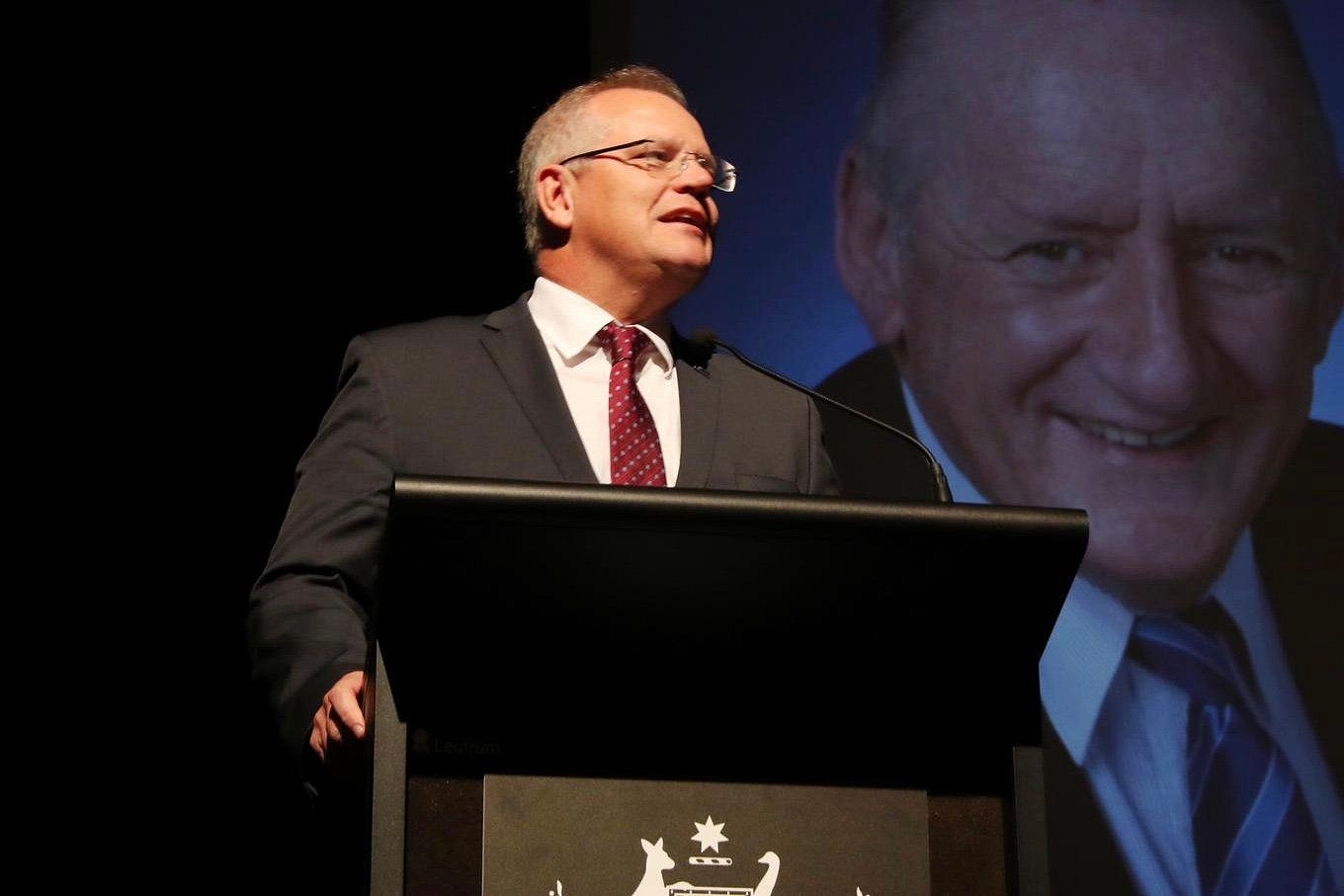News Brief
National Gallery Of Australia To Return Three ‘Stolen’ Indian Artefacts During PM Scott Morrison’s 2020 India Visit
- These artefacts are: Pair of door guardians and The Serpent King (Nagaraja).
- The dubious nature of their obtainment came to light after fresh evidence against art smuggler Subhash Kapoor emerged.

Prime Minister of Australia Scott Morrison (Twitter/@ScottMorrisonMP)
Australia will return three Indian artefacts housed at the National Gallery of Australia (NGA) which were part of their national collection.
These artefacts are: Pair of door guardians (dvarapalaka) 15th Century, Tamil Nadu, India (two works), and The serpent king (Nagaraja) 6th to 8th Century, Rajasthan or Madhya Pradesh, India.
The National Gallery of Australia has said in a statement that it has “deaccessioned three Indian sculptures from the national collection”.
It will voluntarily return these artefacts to the Government of India after extensive research.
NGA has said in its statement, “All three works were bought from New York art dealer Subhash Kapoor. The decision to formally deaccession and repatriate the sculptures follows new evidence in criminal charges levelled against Kapoor in New York.”
The artefacts will see a homecoming during Australian Prime Minister PM Scott Morrison’s visit to India in January 2020.
The statement added: “The artefacts, which were held by the National Gallery of Australia (Gallery), were purchased in good faith, but extensive research undertaken by the Gallery has led to its decision to voluntarily return these artefacts to India.”
This was announced at a jointly issued media release from Australia’s Prime Minister Scott Morrison, Minister for Foreign Affairs and Minister for Women, and Minister for Communications Cyber Safety and the Arts.
It said: “India and Australia are party to the UNESCO 1970 Convention on the Means of Prohibiting and Preventing the Illicit Import, Export and Transport of Ownership of Cultural Property.”
The statement from Minister for Foreign Affairs, Marise Payne, reveals the significant role the Australian government is playing in the smoothening of cultural ties between the two countries by ensuring that India gets back her tangible heritage which was housed in Australia.
It said that the “...the return of these artefacts also underscores the world’s debt to India’s magnificent culture, history and legacy.”
Australian government had returned three stolen artefacts to India, including an idol of goddess Pratyangira and a Buddha statue in 2016.
The Australian joint statement has mentioned that it realises the importance and role artefacts play in allowing communities to celebrate shared history and culture.
“The National Gallery of Australia recognises this, and is strongly committed to the ethical collecting of cultural material and best practice collection management. I commend the Gallery for resolving these legacy issues,” it adds.
The presence of an understanding and extradition treaty between India and Australia to recover the artefacts has been of help.
Swarajya has earlier written on the instrumental role being played by the India Pride Project in the identification, rescue and return of Indian heritage and on the loopholes that have led to the smuggling of artefacts.
Australia has been maintaining its flowing and kind gesture towards India. In 2014, then Australian PM Tony Abbott had returned two idols. These were of Nataraja and Ardhanariswarar.
In 2018, it was reported that Australia was showing positive signs towards returning seven artefacts housed in the NGA.
For years, Indian heritage has been systematically plundered from the most treasured religious and heritage sites.
These treasures reach foreign shores and galleries owing to several loopholes, making India a soft target and owing to the cunning grip of art smugglers on the vulnerable and valuable pieces of ancient Indian art that belong to India's temples.
Support Swarajya's 50 Ground Reports Project & Sponsor A Story
Every general election Swarajya does a 50 ground reports project.
Aimed only at serious readers and those who appreciate the nuances of political undercurrents, the project provides a sense of India's electoral landscape. As you know, these reports are produced after considerable investment of travel, time and effort on the ground.
This time too we've kicked off the project in style and have covered over 30 constituencies already. If you're someone who appreciates such work and have enjoyed our coverage please consider sponsoring a ground report for just Rs 2999 to Rs 19,999 - it goes a long way in helping us produce more quality reportage.
You can also back this project by becoming a subscriber for as little as Rs 999 - so do click on this links and choose a plan that suits you and back us.
Click below to contribute.
Latest